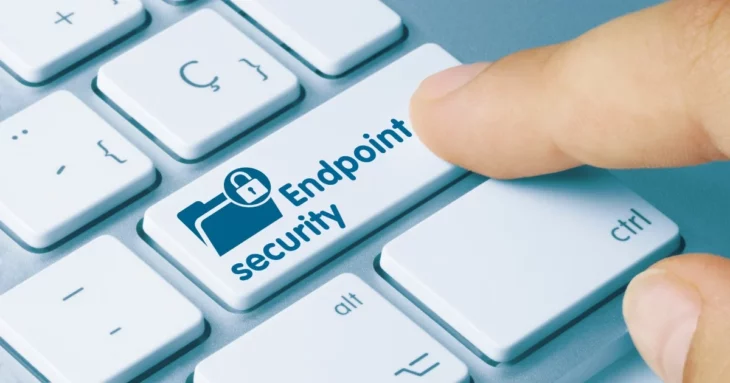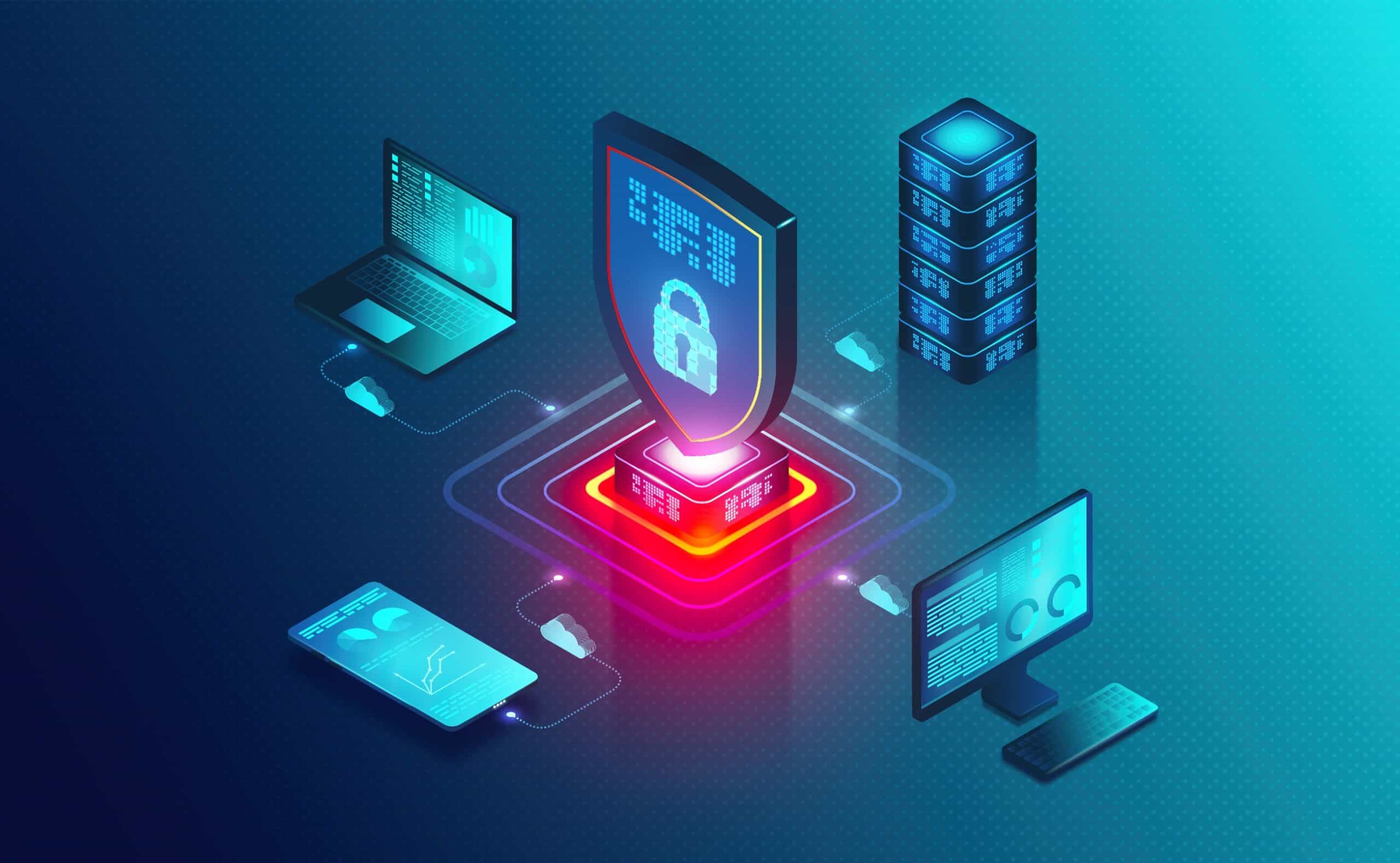
In the digital age, where data is a critical asset, securing the endpoints of a network has become an essential aspect of any business’s cybersecurity strategy. For small and medium-sized businesses (SMBs), this need is particularly acute. Unlike large corporations, SMBs often lack the extensive resources and dedicated IT security teams that can manage complex cybersecurity infrastructure. This vulnerability makes them attractive targets for cybercriminals. Understanding the importance of endpoint security can help SMBs protect their data, maintain customer trust, and ensure the continuity of their operations.
Understanding Endpoint Security
Endpoint security refers to the practice of securing individual devices, such as computers, smartphones, tablets, and other network-connected hardware, that serve as entry points to a network. Each endpoint can be a potential target for cyber threats, including malware, ransomware, phishing attacks, and unauthorized access. Endpoint security solutions aim to protect these devices by detecting and blocking malicious activities, enforcing security policies, and providing alerts about potential threats.
[mailpoet_form id=”3″]
For SMBs, endpoint security is not just about deploying antivirus software. It involves a comprehensive approach that includes device management, data encryption, threat detection and response, and regular software updates. This holistic approach ensures that all potential vulnerabilities are addressed, reducing the risk of a successful cyberattack.
The Unique Cybersecurity Challenges Faced by SMBs
SMBs face unique challenges in the realm of cybersecurity, often making them more susceptible to attacks:
- Limited Resources: SMBs typically operate with constrained budgets, which can limit their ability to invest in sophisticated cybersecurity tools or hire specialized IT staff. This resource limitation often results in less robust security measures, making them easier targets for attackers.
- Lack of Expertise: Many SMBs do not have dedicated cybersecurity personnel. Instead, IT responsibilities are often handled by a small team or a single individual who may not have specialized training in cybersecurity. This lack of expertise can lead to inadequate protection measures and slow responses to emerging threats.
- Increased Attack Surface: The increasing adoption of remote work and the use of personal devices for business purposes have expanded the attack surface for SMBs. Each device connected to the company network can serve as a potential entry point for attackers, making comprehensive endpoint security critical.
- High Impact of Data Breaches: While larger organizations may have the resources to recover from a data breach, SMBs often struggle to recover from such incidents. The financial cost, reputational damage, and potential loss of customers can be devastating, and in some cases, can lead to the business’s closure.
Key Benefits of Endpoint Security for SMBs
Investing in endpoint security offers several crucial benefits for SMBs:
- Data Protection: One of the primary functions of endpoint security is to safeguard sensitive business and customer data. This protection is vital for maintaining customer trust and complying with data protection regulations, such as the General Data Protection Regulation (GDPR) and the California Consumer Privacy Act (CCPA).
- Threat Detection and Response: Advanced endpoint security solutions provide real-time threat detection and automated response capabilities. This functionality allows SMBs to quickly identify and neutralize threats before they can cause significant damage.
- Cost Savings: While implementing robust endpoint security measures requires an initial investment, it can save SMBs significant costs in the long run. Preventing data breaches, avoiding ransomware payments, and reducing downtime due to cyber incidents can outweigh the costs associated with security measures.
- Regulatory Compliance: Many industries have specific cybersecurity requirements and regulations. Endpoint security helps SMBs comply with these regulations, avoiding fines and legal repercussions.
- Business Continuity: By protecting endpoints, businesses can ensure continuity of operations even in the face of cyber threats. This protection is particularly important for SMBs, where disruptions can have a disproportionate impact on business performance and reputation.
Essential Components of an Effective Endpoint Security Strategy
To maximize the benefits of endpoint security, SMBs should consider the following essential components:
- Antivirus and Anti-Malware: Traditional antivirus software remains a cornerstone of endpoint security, protecting against known threats. Advanced anti-malware solutions can detect and block newer, more sophisticated forms of malware.
- Firewalls: Personal firewalls on devices help prevent unauthorized access and filter out malicious traffic. These are particularly important for remote workers connecting from various locations.
- Data Encryption: Encrypting data on devices ensures that even if an endpoint is compromised, the data remains protected. This practice is crucial for sensitive information, such as customer data, financial records, and intellectual property.
- Endpoint Detection and Response (EDR): EDR solutions provide continuous monitoring and analysis of endpoint activities. They help detect and respond to threats that bypass traditional security measures, offering advanced threat detection capabilities.
- Patch Management: Regularly updating software and operating systems is critical to fixing security vulnerabilities. Automated patch management systems can ensure that all endpoints are up-to-date with the latest security patches.
- Access Control: Implementing strict access control measures ensures that only authorized users can access sensitive information. This control includes multi-factor authentication (MFA) and role-based access control (RBAC).
- Security Awareness Training: Human error is a common factor in security breaches. Providing employees with training on security best practices, recognizing phishing attempts, and safe internet usage is crucial in maintaining a secure environment.
Overcoming Barriers to Endpoint Security Implementation
Despite the clear benefits, SMBs often face barriers to implementing comprehensive endpoint security measures:
- Cost Concerns: The initial cost of implementing endpoint security can be a significant barrier. However, SMBs should consider these costs an investment in the company’s long-term health and security. Many security vendors offer scalable solutions tailored to SMBs, making it possible to find cost-effective options.
- Complexity and Usability: Some SMBs may be deterred by the perceived complexity of security solutions. Choosing user-friendly, scalable solutions that can be easily integrated into existing systems can help overcome this barrier.
- Lack of Awareness: Many SMBs underestimate their risk of cyberattacks, believing that only larger companies are targeted. Increasing awareness of the risks and educating decision-makers about the importance of endpoint security can drive better security practices.
In an increasingly digital world, SMBs cannot afford to overlook endpoint security. The risks associated with unsecured endpoints—ranging from data breaches to business disruption—are too significant to ignore. By investing in comprehensive endpoint security measures, SMBs can protect their valuable data, maintain customer trust, and ensure their business’s continuity and growth. As cyber threats evolve, so must the strategies to counter them, making endpoint security not just a necessity, but a critical component of business resilience.
